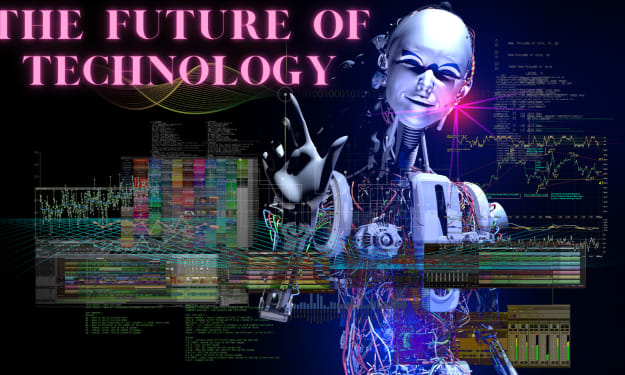The Future of Artificial Intelligence: Trends and Implications
Unveiling the AI Revolution: Trends, Implications, and Pathways to a Transformed Future

Artificial Intelligence (AI) has emerged as one of the most transformative technologies of the 21st century, with its impact felt across industries and society as a whole. As AI continues to advance at a rapid pace, it is crucial to explore the latest trends and implications that shape its future direction. This article delves into the key trends driving the evolution of AI and the profound implications they hold for various sectors.
Rise of Explainable AI
One of the notable trends in AI is the increasing demand for explainable AI systems. As AI algorithms become more complex and ubiquitous, there is a growing need to understand how decisions are made. Explainable AI aims to provide transparency by enabling users to comprehend the reasoning behind AI-generated outcomes. This trend not only fosters trust in AI systems but also addresses ethical concerns related to biased decision-making and potential discriminatory practices.
Ethical AI and Responsible Innovation
With great power comes great responsibility. The ethical implications of AI are gaining significant attention. Companies and policymakers are recognizing the importance of developing AI systems that align with ethical principles, such as fairness, accountability, and transparency. Responsible innovation is becoming a guiding principle to ensure that AI technologies are developed and deployed in a manner that benefits humanity while minimizing potential risks.
Advancements in Natural Language Processing (NLP)
Natural Language Processing, a subfield of AI, focuses on enabling computers to understand and interact with human language. Recent breakthroughs in NLP, particularly in language generation and sentiment analysis, have led to the development of highly sophisticated chatbots, language translators, and voice assistants. These advancements have transformed the way we communicate, offering seamless interactions and personalized experiences.
Reinforcement Learning and Autonomous Systems
Reinforcement learning, an AI technique that uses rewards and punishments to train algorithms, is making significant strides in developing autonomous systems. From self-driving cars to robotics, reinforcement learning enables machines to learn and adapt to complex environments. This trend holds immense potential for enhancing efficiency and safety across industries, but it also raises concerns regarding the impact on employment and the need for regulatory frameworks.
AI-powered Healthcare
AI is revolutionizing the healthcare industry by offering improved diagnostics, personalized treatments, and predictive analytics. Machine learning algorithms can analyze vast amounts of patient data to identify patterns and provide early detection of diseases. Additionally, AI-powered robotic-assisted surgeries are enhancing precision and reducing the risk of errors. However, ethical considerations, data privacy, and the need for human oversight remain critical concerns.
AI in Cybersecurity
As cybersecurity threats continue to evolve, AI is playing a crucial role in bolstering defenses. AI algorithms can quickly detect anomalies and patterns indicative of cyberattacks, enabling proactive responses. Moreover, AI aids in automating threat intelligence and enhancing the speed and accuracy of incident response. Nevertheless, there is an ongoing cat-and-mouse game between AI-powered attacks and defenses, requiring continuous advancements in cybersecurity strategies.
AI and Personalized User Experiences
AI is transforming user experiences by personalizing interactions and recommendations across various platforms. From personalized shopping recommendations to content curation on social media, AI algorithms analyze user data to understand preferences and deliver tailored experiences. However, this trend raises concerns about privacy and data protection, necessitating robust regulations and user control over data usage.
AI and Climate Change
The fight against climate change can greatly benefit from AI applications. AI-powered systems can optimize energy consumption, improve renewable energy generation, and enhance climate modeling. Additionally, AI can be used to analyze large datasets to identify patterns and make predictions regarding climate change impacts. By harnessing the power of AI, we can develop innovative solutions to mitigate the effects of climate change and transition towards a more sustainable future.
AI and Education
AI is reshaping the education landscape by offering personalized learning experiences and intelligent tutoring systems. Adaptive learning platforms use AI algorithms to tailor educational content to individual students' needs, improving engagement and learning outcomes. Furthermore, AI-powered tools assist teachers in automating administrative tasks, allowing them to focus more on personalized instruction. However, ethical considerations such as data privacy and algorithm bias must be carefully addressed to ensure equitable access to education for all.
AI and Workforce Transformation
The integration of AI into the workforce has the potential to reshape jobs and create new opportunities. While there are concerns about job displacement, AI also holds the promise of augmenting human capabilities and enabling workers to focus on more complex and creative tasks. Upskilling and reskilling initiatives are becoming increasingly crucial to ensure a smooth transition and empower individuals to thrive in the AI-driven workplace of the future.
Conclusion
The future of artificial intelligence is brimming with exciting possibilities and profound implications. As the technology continues to advance, trends such as explainable AI, ethical considerations, advancements in natural language processing, and applications in healthcare, cybersecurity, personalized user experiences, climate change, education, and workforce transformation will shape its trajectory. It is vital to approach AI development and deployment with responsible innovation, ensuring that the benefits are harnessed while mitigating potential risks. By embracing these trends, we can unlock the transformative potential of AI and create a more inclusive and sustainable future.





Comments
There are no comments for this story
Be the first to respond and start the conversation.